Article first published in eHospice on July 9, 2024
In 2024, Global Partners in Care (GPIC) celebrates its 25th anniversary. Over the past 25 years, GPIC has been dedicated to enhancing access to compassionate care for individuals and families across the globe who face serious illness, death and grief. This silver anniversary is a significant milestone in the history of the organization. Not only does it provide an occasion to reflect on the impact the organization has made, but it also provides an opportunity to consider numerous future possibilities.
Origins and Evolution

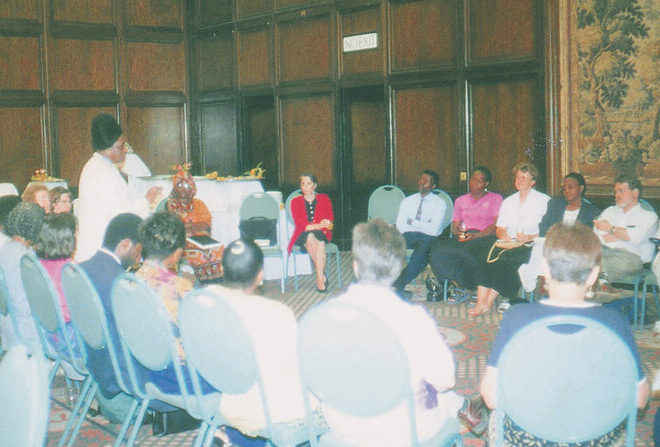
Global Partners in Care began as the Foundation for Hospices in Sub-Saharan Africa (FHSSA). During a professional tour to hospices in South Africa and Zimbabwe, U.S. hospice leaders witnessed the devastating impact of the HIV/AIDS pandemic across the region. In 1999, HIV/AIDS was the number one cause of death in sub-Saharan Africa and countries in the region lacked sufficient hospice care to meet the burgeoning need; existing programs were overwhelmed. Recognizing the urgency , American hospice leaders mobilized to establish a non-profit organization that could meaningfully assist their colleagues and officially founded FHSSA in 1999.
Despite significant progress over the next five years, FHSSA faced organizational challenges. In 2004, it became an affiliate of the National Hospice and Palliative Care Organization (NHPCO), allowing direct connection with NHPCO’s membership and expanding the scope of their work. The establishment of the African Palliative Care Association (APCA) in 2004 further strengthened FHSSA’s partnerships and relationships. Over the next decade, FHSSA collaborated with advocates, donors and hospice organizations to enhance its mission and reach.
A milestone development during the early years of FHSSA was receiving a President’s Emergency Plan for AIDS Relief (PEPFAR) grant through USAID. As a recipient, FHSSA worked with the Evangelical Lutheran Church of Tanzania (ELCT) as its implementing partner, along with APCA, to build palliative care capacity. This grant established the palliative care programs within ELCT, provided training, facilitated partnerships and developed palliative care units at 13 rural hospitals. Since then, the ELCT palliative care programs have continued to grow, and there are now 50 ELCT hospitals and health facilities across the country providing palliative care services.
Expanding Horizons

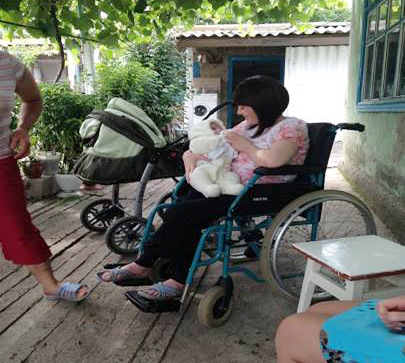
In 2014, with input from hospice programs across the U.S., FHSSA rebranded as “Global Partners in Care.” While maintaining a focus on relationships and partnerships in Africa, the successful partnership model could now extend to other regions where the need was great and resources were limited.
During a transition period at NHPCO, GPIC found a new home in the Center for Hospice Care (CHC) in Indiana. One of the most-recognized GPIC partnerships was between CHC and the Palliative Care Association of Uganda. Due to the success of that partnership and CHC’s collaborative relationships with University of Notre Dame, Indiana University and other community partners, it became the new home for GPIC in 2017.
Our Impact
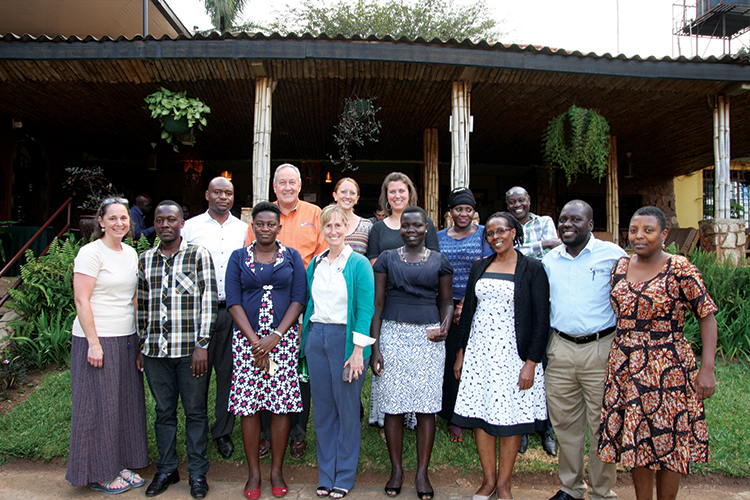

Today, GPIC collaborates with hospices and international organizations to improve access in resource-constrained regions worldwide. Guided by principles of compassion, relationship development, trust, mutual respect, learning and support, GPIC continues to make a profound impact. Through cross-cultural partnerships, GPIC connects and supports hospice and palliative care organizations in the U.S. with those in low and low-middle income countries. Our partnership program has engaged more than 100 partnerships over the past 25 years. Collectively, more than $8 million dollars has been sent to partners around the globe to improve access to palliative care in these communities.
GPIC also provides educational opportunities for practitioners and students and promotes research in global palliative care. Our African Palliative Care Education Scholarship Program – a collaboration with APCA – has awarded 73 palliative care education scholarships to healthcare professionals from 16 African countries over the past 13 years. The training supported by the scholarships has been at the certificate, diploma, bachelor’s and master’s level. Recipients have mostly been nurses and social workers, and we are now expanding the reach to include other health professionals as palliative care becomes more established on the continent.
Our student internship program has engaged 23 student learners from seven different universities since 2018. These 12 undergraduate and 11 graduate students came from 10 areas of study which underscores the interdisciplinary nature of palliative care. Their work has varied and includes strategic communications support, project evaluations and exploration of specific research questions with GPIC partners around the globe.
Embracing Our Principles into the Future
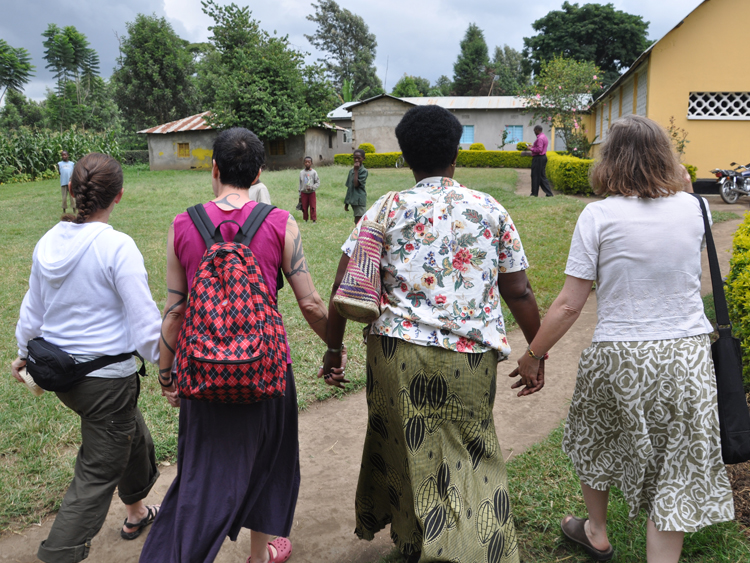
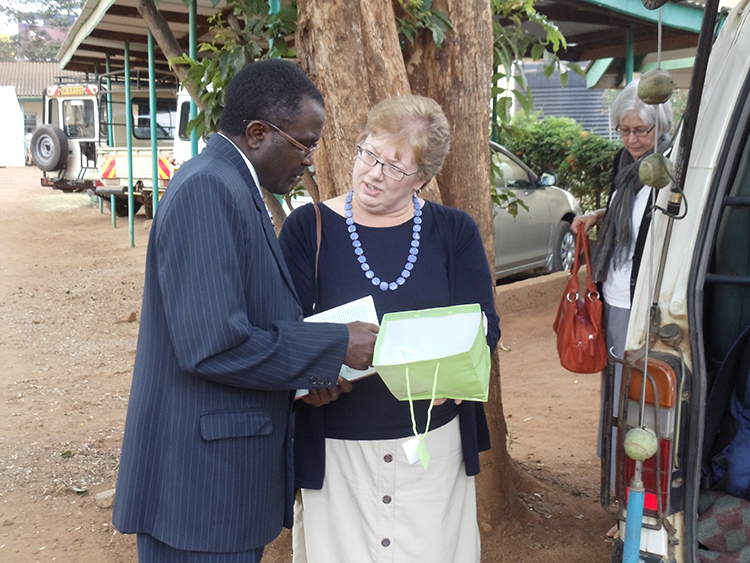
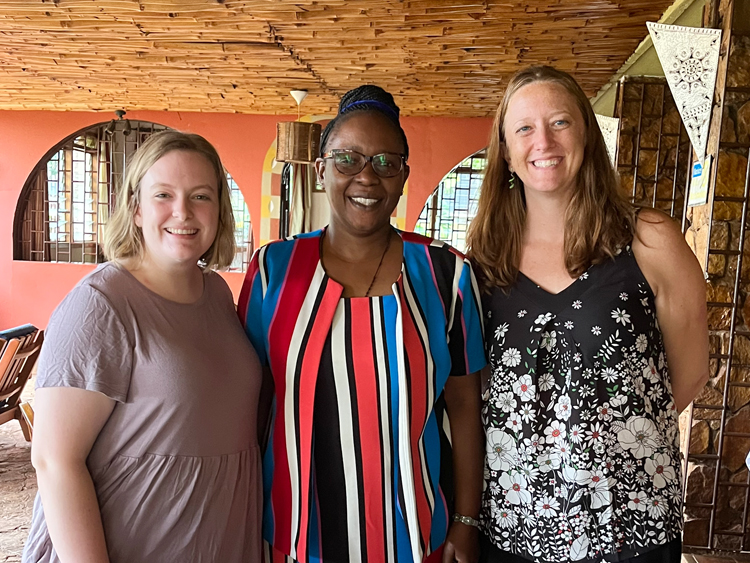
Over the past 25 years, the organization’s partnership model has expanded, leading to numerous programs and successful projects that have helped increase access to palliative care around the globe. The GPIC staff and advisory council express our immense gratitude to those people and organizations who have contributed to this impact. Their dedication inspires the work and propels GPIC as we look ahead.
As we challenge ourselves to consider our future direction, we must always be reminded that our greatest strength lies in the relationships that have been the hallmark of our success. Developing mutual respect through a shared cause has been both a means to an end and a driving force. Perhaps this truth was evident to those who mobilized 25 years ago, or perhaps it unfolded gradually, but there is no doubt it makes our work stronger. The late U.S. Senator J. William Fulbright, who established the U.S. government’s flagship international educational exchange program, understood and promoted the importance of relationship building to enhance mutual understanding. He eloquently stated, “The essence of intercultural education is the acquisition of empathy — the ability to see the world as others see it, and to allow for the possibility that others may perceive something we have failed to see or may perceive it more accurately.”
Though we come from different corners of the world, we remain united in a common cause to improve the quality of living and dying. It is through these relationships that we have persevered and achieved success. Collaboratively, we have exchanged knowledge, deepened our empathy and broadened our perspectives.
There is no better time than now to build on these principles. As we look toward the future, we are inspired by those who came before us and energized by those we work with today. They continue to motivate us in our quest to ensure the basic human right of compassionate, quality care for those experiencing serious illness, death and grief across the globe. It is to this end we remain committed to exploring opportunities that address the unique challenges of today to shape a compassionate and impactful future.
To join our mission or learn more about Global Partners in Care, contact us at info@globalpartnersincare.org.
